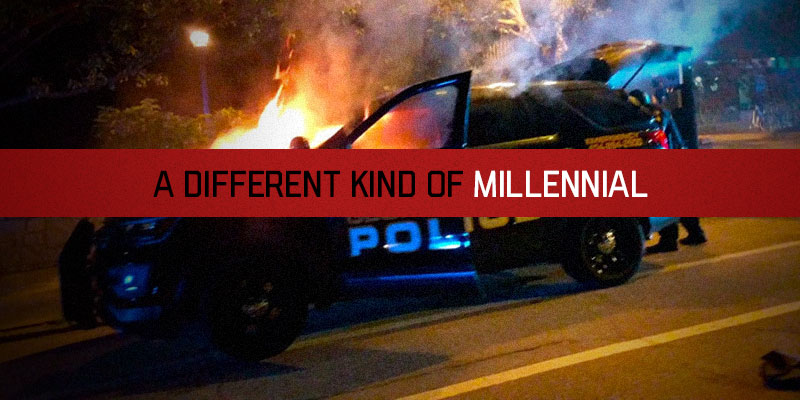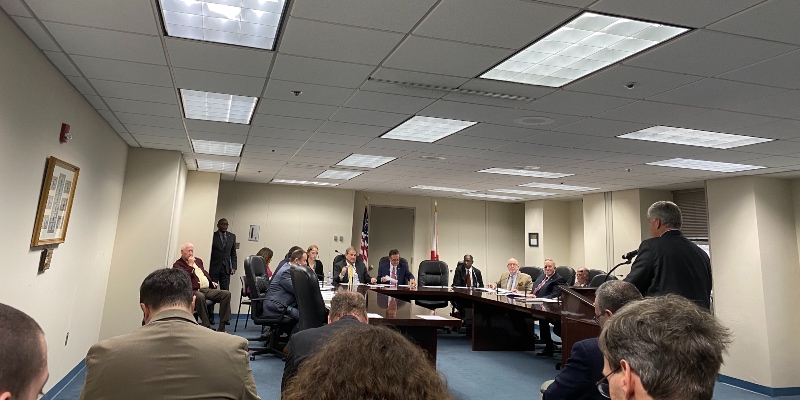
Violence erupted on the Georgia Tech campus this Monday. Scott “Scout” Schultz, an LGBT activist and student leader, was killed, September 17th, by a Georgia Institute of Technology campus police officer after a questionable stand-off situation. The use of deadly force by the officer will have it’s day in court, where the evidence will weigh-out in a fair and just manner. Albeit a travesty, the death is not the issue of this discussion. The actual problem is the immediate response by local individuals to take up arms against the local police. It seems that some of the left has forgotten the power of meaningful protest, instead viewing any opportunity to break another window or smash another car as being conducive to furthering their cause.
It must be acknowledged; people are likely tired of hearing about police killings. The average American would admit it’s perturbing how common it is to hear about the usage of deadly-force in questionable situations (particularly due to the excessive media coverage). Events like the one at Georgia Tech make the news on a consistent basis. It’s completely understandable that someone may take issue with this, and the corresponding vigils and peaceful protests that occur around these events draw genuine support. But, when 50 individuals marched to the Georgia Tech Police headquarters to spontaneously protest, it became a different matter. Destruction, arrests, and a campus lockdown now
mark the story.
Beyond the initial outbreak, culminating in one destroyed police car, two injured officers, and three arrests, the destruction quelled quickly. Yet, given the events in other cities around the nation, it would not be farfetched to presume that this is metaphorically a powder keg that didn’t ignite. Georgia Tech and the City of Atlanta need to count their blessings that the campus and city didn’t devolve into a full-force riot. Other cities have burned for weeks for similar events, and there are certainly those who would have been ready to add Atlanta to the list.
The riots that sprung up around the shootings of Michael Brown in Ferguson, MO and Freddie Gray in Baltimore did nothing more than destroy communities and instill further distrust of the police. In a time where the nation is more divided than ever, there is nothing to be gained by destruction. Instead, there is power in civil discussion, as we see every Sunday.
Like kneeling during the national anthem. Americans might not like it, but that’s the point. It makes people feel uncomfortable. And, until a coach fires players who protest, they will maintain that ability to take a knee. Because front offices have refused to take action, it has forced a conversation. Agree with the players or not, they have done a great job at galvanizing supporters of their cause against alleged inequalities within the nation. NFL players didn’t smash windows in an effort to speak their message, but instead found an effective tactic that got the nation talking.
The events at Georgia Tech further illustrate the destructive tendencies that have plagued America’s political dialogue. Rarely does anything occur without there being a destructive response by certain arms of the left? The University of California, Berkeley has spent $1.4 million on security measures for conservative speakers since February. Celebrities, including Madonna, have called for violence against the President. The so-called “Antifa” have executed violent protests at numerous organized right-leaning speaking events. James T. Hodgkinson, a man with a vendetta for Congressional Republicans, shot Congressman Steve Scalise this summer. Seemingly any disagreement within the past year justifies violence in the minds of some of the ‘Resistance.’
It’s time for the left to tie up the loose ends and quell the violence. Those few hellbent on destroying society while wearing black masks need to come back to the table. Effective organizing will be recognized if there is legitimacy in the concern. Protesting at the drop of a hat accomplishes little but shifting the discussion away from the initial actions or issue. When the news fills with photos of a burning police car and protester mugshots, it’s difficult to pay mind to the death at hand. A Georgia Tech student is dead, and so is any effort to have a legitimate dialogue about the issue.
Editor’s Note: The views of guests columnists who submit opinion editorials do not necessarily reflect the views of Yellowhammer
 About the Author: Gerald Fraas is a guest contributor to Yellowhammer. He’s a student at the University of Alabama, studying political science and economics. He is involved with UA Young Americans for Freedom as the External Affairs Director. He can be reached at [email protected].
About the Author: Gerald Fraas is a guest contributor to Yellowhammer. He’s a student at the University of Alabama, studying political science and economics. He is involved with UA Young Americans for Freedom as the External Affairs Director. He can be reached at [email protected].












